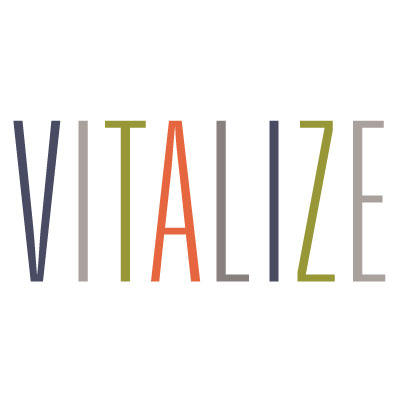How are we holding up Vitalize community? It’s been a tough couple of years. By now, if you are like most people and patients I speak with (including myself) you are starting to feel the overwhelm of what has turned into chronic, and long-term stress. This is at a minimum. Some of us have also experienced severe child care issues, unemployment, divorce, loss, and for many of us, these experiences have been multifaceted.
After long periods of complex stress and grief, we can start to feel overwhelmed, and even feel the effects on our physical body. It is common to experience low or irregular mood, sleep issues, loss of appetite, digestive upset, hormone irregularities, general inflammation and more.
If you are like me, you might be reaching out to try to find some answers, assist yourself in managing the discomfort of it all, and figure out how to make it stop. “Can’t we go back two years, to an easier time, a time that we might now even feel like we took for granted?” Of course, the answer is ‘no’ and even if we could, we wouldn’t REALLY want to, it’s this type of intense learning that we’re here for.
I went on a quest to find some answers and try to make it all easier for myself. In fact, I have been questing for the last 6 months. My question… “How do I feel normal again?” What I learned was so much more helpful than I would have ever imagined.
First, I found a book called “After” which was written by an MD named Bruce Greyson. “After” is a doctor’s exploration into what near-death experiences reveal about life and beyond as well as a look at the research that he conducted during his career. Dr. Greyson’s work is worth every minute of your time. If you feel you are too busy to add another book to that stack gathering dust next to your bed, don’t worry, you will also find this book on Audible.
Second, I found Anderson Cooper’s grief podcast. It is AMAZING! You can read about it here but better yet, just listen, I promise you won’t be disappointed. We are not alone in this experience of loss and grief. If you feel alone, the last episode of this mini-series (seven episodes in total) will convince you otherwise.
Third, I found “From Scratch”, a remarkable and inspiring Netflix original mini-series. Based on a true story of two sisters and their family dynamics as they move through life, love, loss, and the blending of cultures. Again, about 7 episodes. I laughed, I cried, I fell in love, and I wanted to scream. It was all the things, all at once. I can’t recommend it highly enough. If you are like me, and you find yourself wanting more after watching it, check out Bené Brown’s “Unlocking Us” two-part, podcast interview with the writers, creators, and sisters, Attica and Tembi Locke. Again, just really good, heartfelt stuff.
Fourth, while I was listening to the “Unlocking Us” podcast a came across an older episode from May of this year. In this episode, Bené and her sisters sit together to discuss some of the questions that readers have asked about Benés book, Atlas of the Heart. This is where I learned the definition of disenfranchised grief and how it differs from general grief. They define this type of grief as grief that “is not openly acknowledged or publicly supported through mourning practices or rituals because the experience is not valued or counted [by others] as a loss”. This type of grief can also be invisible or hard to see by others. For me, this term felt like it fit perfectly with the grief we have had due to COVID and its far reaching effects.
The fifth and final recommendation for all the feels of these times seems to be appropriate for coming around to a solution… I found a podcast called “A Slight Change of Plans” with Maya Shankar. The episode that caught my attention is called “The Science of Loneliness”. The guest is Dr. Vivek Murthy, he is the U.S. Surgeon General. He states that loneliness is more common among adults in our country than diabetes. It is a public health threat. He has written a book on loneliness called “Together”. His research, as he shares in this episode, shows that helping others and building community, resulting in more meaningful social connection is key to our feeling better, living better and being healthier. You can also find a similar interview with Dr. Murthy on “A Hidden Brain”, another great science podcast.
I have to tell you all, I feel the very best when I am at work. I know, you think I’m a workaholic, and maybe I am but I swear, this is different. I’m tired and I’m sad, my days off work are more difficult than my days on. Hearing the stories and deeply connecting with my patients is what feels the most supportive, helpful and even joyful. Thank you! It’s an honor to hear your stories, be part of your lives, and hopefully provide some support in this crazy world.
I’m signing off with a favorite quote from a favorite wise old wizard-
“To the well organized mind, death is but the next great adventure” -Albus Dumbledour
Whether it’s literal death and loss or a more theoretical death that is required for the rebuild and rebirth of anything in your life, I think this applies. Take care and I hope to see you in the clinic soon. Let’s connect!


